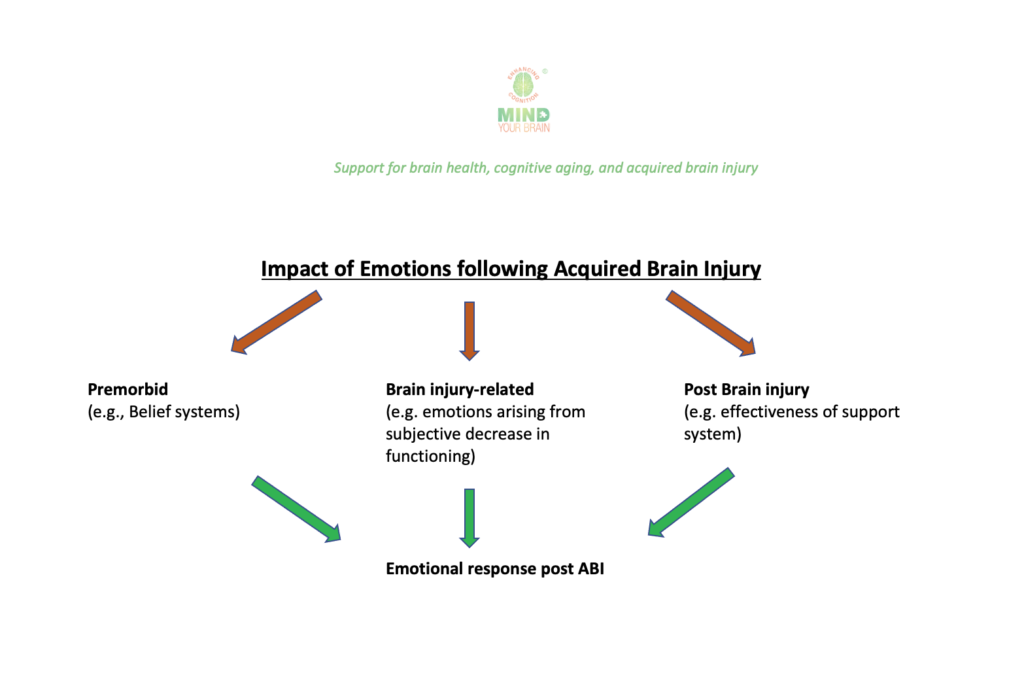Emotions- why do we need them, and what when things go wrong
People likely already know, we can experience positive and negative emotions, and what and how we experience these emotions will fluctuate throughout the day, week, and over time- this is part of our normal functioning.
Emotions are a barometer of how people feel and function; when we feel good, it generally means everything is in balance. But stressful situations can tip this balance, changing our emotional status to imbalanced. If this is a short-term situation, it can be generally easily addressed with constructive emotional regulation strategies. However, f stressful situations are repetitive and/ or long-term, it generally results in negative consequences for our mental and physical health while also impacting our social relationships.
What is experienced as a stressful situation depends on a person and the situation. But navigating the maze of understanding what needs to be done to re-stabilize one’s own emotions and how to deal with stressful situations can be daunting.
Emotions are a natural part of our life
So, first of all, emotions are a natural part of our everyday life. All of our emotions including the positive and negative emotions help us guide our decisions, and make our lives more colourful. Negative in this context just means the opposite of positive- no judgment is attached to the term ‘negative emotion’.
Emotions have a function- they guide our behaviour
In other words, while our positive emotions may seem more fun and more relevant to our emotional well-being (i.e. feeling stable, happy, content), it is important to realize that all our emotions have a function- including our negative emotions. In short, all emotions, the positive and the negative ones, have evolved to fulfill the function of guiding our behaviour by communicating to us about the state of the world around us and our relationship with it.
For example, the function of anger in the face of injustice can be the impetus to drive changes. Anxiety is designed, based on evolutionary theory, to keep us safe as it signals danger.
However, all emotions require us to interpret what is actually happening- this is true for negative as well as positive emotions. And if our interpretation of our emotions is incorrect, then this can interfere with successful functioning, and potentially reinforce the challenging emotions and feelings (e.g.using avoidance in situations where avoidance restricts you more and more).
Strategies to deal with our Emotions
Other challenges in this context can arise from utilizing destructive strategies to deal with ‘unwanted emotions’.
But what happens when emotions begin to interfere with a person’s well-being and successful functioning in everyday life? One important question that needs to be asked is what actually drives these emotions, and not only how, but also, why do they interfere with well-being.
Sometimes, albeit not always, people may not be aware of the reasons that drive their emotional status. At other times, a person may well know what actually happened and why negative emotions ensue, but regulation of emotions may be challenging- no fun.
And some emotions will have no direct solution like feeling anxious about what will happen in the future, and so it may be unclear how to move forward.
As a result, there are many factors that impact emotional well-being, and as a professional, identifying what drives the challenges is of vital importance. These underlying factors that drive a person’s emotional state are NOT always emotional in nature, and therefore sometimes another treatment is indicated. To make this very clear, if a person has cancer, it is devastating and will have a negative impact on the person’s emotional well-being (and everyone around). But emotional treatment would not be sufficient (albeit emotional support would be indicated).
Similarly, nowadays our world is highly complex and requires a high level of thinking work such as absorbing knowledge, organizing information, remembering new information, and so on. To illustrate, a simple task of going to the grocery store requires orientation, remembering what one wanted to buy, inhibiting impulsive buying (buying stuff one did not need), monitoring one’s budget and one’s time as needed (all of these are considered part of thinking functions). If a person cannot complete such a task successfully, the person usually will experience at least some negative emotions.
Helping people clarify the reasons that drive their negative emotions, and how to address them, is an important piece of therapeutic care at Mind your Brain. This includes addressing cognitive difficulties by utilizing principles of cognitive rehabilitation for people whose thinking has been impacted by a brain injury.

If you are someone who is dealing with challenges following a concussion or another brain injury, you could continue reading here
If you are a caregiver of someone with a brain injury, resources can be found here and you can read more here
If you are a caregiver of someone with physical injury, cognitive decline, or dementia, you find additional information and resources here
Summary
- Article Name Emotions- why do we need them, and what when things go wrong
-
Descriptionfunction of emotions and addressing emotional challenges
- Author Heike Dumke
- Publisher NameMind your Brain
- Publisher Logo



 Cognitive aging/ cognitive health
Cognitive aging/ cognitive health